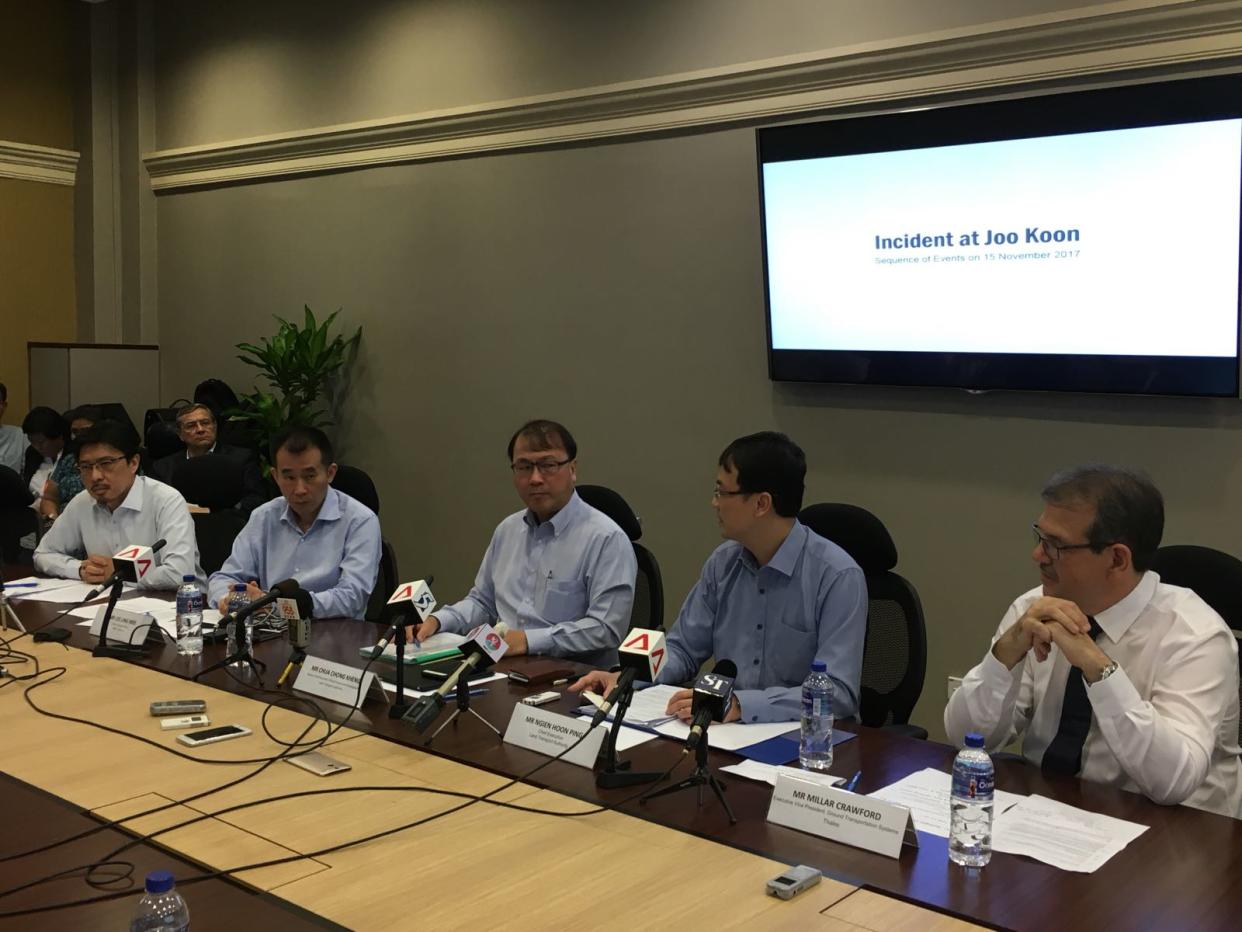Reduced service hours at 19 MRT stations in December to help speed up re-signalling works

From 8 December, 19 stations on the North-South and East-West Lines will see their operating hours reduced in a bid to accelerate re-signalling works on the East-West Line (EWL).
The move was announced by Land Transport Authority chief executive Ngian Hoon Ping on Tuesday (21 November) in the wake of a train collision at Joo Koon station that injured some 38 people.
From 8 December till the end of 2017, 17 EWL stations – from Tiong Bahru to Tuas Link – and two North-South Line (NSL) stations – Bukit Batok and Bukit Gombak – will close at 11pm on Fridays and Saturdays, and open at 8am on Saturdays and Sundays.
This arrangement will more than double the number of engineering hours for the Land Transport Authority (LTA) and SMRT engineers, from three to seven and a half hours each night.
These stretches will also be fully closed on 10 and 17 December, which both fall on a Sunday. Bukit Batok and Bukit Gombak stations are also affected as the works will extend to Jurong East station, which is a heavily used intersection of the NSL and EWL
Addressing reporters at the SMRT headquarters, Ngian explained that the change in operating hours was necessary to speed up the timeline for re-signalling works on the EWL, in order to complete them by June 2018 instead of the original target of end-2018.
“There are quite a few streams of work that SMRT has to complete: the usual maintenance works, other renewal works that they have to do for some other assets, plus the CBTC (signalling) system on the EWL.
“If we do not cater for those additional hours, then it’s not possible for Thales to put on the system and run and test it out,” he said referring to the work being done by French conglomerate Thales in upgrading the EWL’s legacy signalling system to the new Communications-Based Train Control (CBTC) system.
Ngian added that train service hours will also be reduced along other stretches of the NSEWL in the first half of 2018. During the affected hours, shuttle buses will be provided along affected stations.
The LTA chief was speaking alongside top management from SMRT and Thales at a press conference that provided an update on last Wednesday’s train collision. It was explained that the incident was caused by a software glitch that disabled a safety feature on one of the trains.
Thales apologised on Wednesday for its part in the incident.
Also announced on Tuesday was the cessation of train services between Joo Koon and Gul Circle stations until re-signalling works on the entire EWL are completed.
Currently, the EWL operates on its legacy signalling system from Pasir to Joo Koon stations, and on the new CBTC system along the Tuas West Extension, which runs from Gul Circle to Tuas Link.
To prevent further complications arising from having two separate signalling systems along an extended line, Ngian said that the two systems would be separated for now, leaving a gap in train services between the Joo Koon and Gul Circle stations. Commuters travelling between the two stations will have to take the bridging bus services provided for by SMRT.
Related stories:
Signalling system supplier Thales apologises for Joo Koon train collision
Software glitch in signalling system led to Joo Koon train collision



